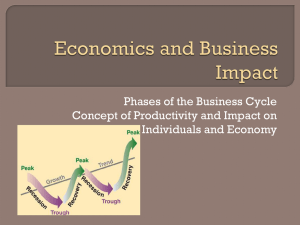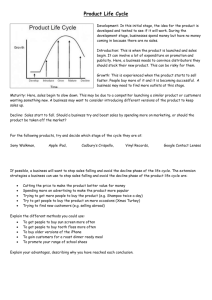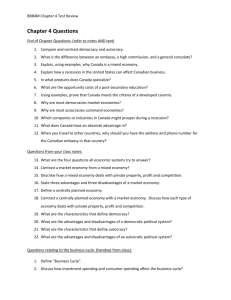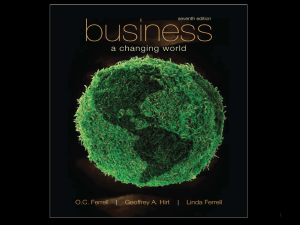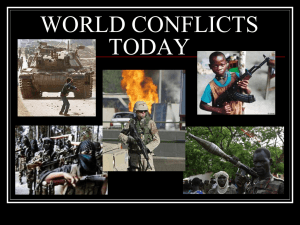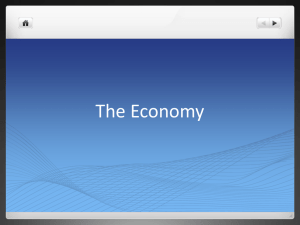Business Cycle PP
advertisement
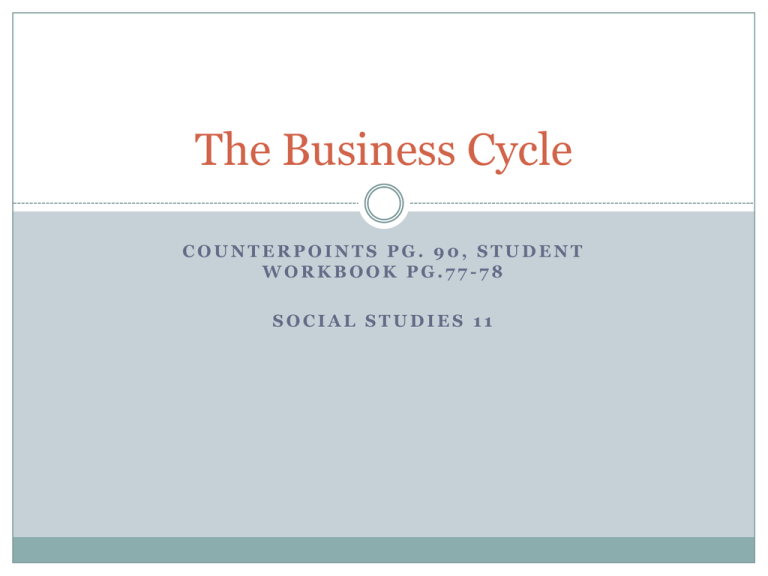
The Business Cycle COUNTERPOINTS PG. 90, STUDENT WORKBOOK PG.77-78 SOCIAL STUDIES 11 What is Capitalism? An economic system where private individuals or corporations own the means of production and distribution. The goal of capitalism is to make money. Production = supply and demand Prices = supply and demand What is Capitalism? At the beginning of the 20th century, capitalism was very different from today. Most governments carried out lassiez faire economic policies. This means that the government did not interfere with the economy. In the late 1920’s, a shift occurred because governments had to exercise more control over economic matters. Business Cycle (Economic Cycle) Capitalism is characterized by a series of booms and busts called the business cycle. A. Letter A represents a decline, sometimes called a recession or bust. During a decline, consumer spending decreases and investors become cautious about the future. As a result, factories slow production and lay off workers. The increased unemployment leads to reduced spending, further contributing to the economy’s decline. B. Letter B represents the lowest point of a recession. This is a period of high unemployment and low prices. The prices drop because there is less money being circulated in the economy. The bust, or recession, tends to not last for a long period of time. C. Letter C represents a boom, or prosperity. A boom is a period of prosperity. During this time, most people have jobs, and are able to buy goods and services. This keeps the economy strong. During this time, there is the highest levels of inflation as producers try to slowly increase their prices in order to get a bigger share of the thriving market. D. Letter D represents a depression. A depression is a very big decline whereas a recession is only a small decline. During a depression, unemployment is very high and there is little money circulating in the marketplace. This is very serious for a country. E. Letter E represents a recovery. During a recovery, the economy is improving. When people have more money, they start spending more, and producers are encouraged to increase production. This means there are more jobs, and, in turn, even more spending. Business Cycle (Economic Cycle) Turn to your neighbour and explain what A,B,C,D,E represent on the Business Cycle chart?
